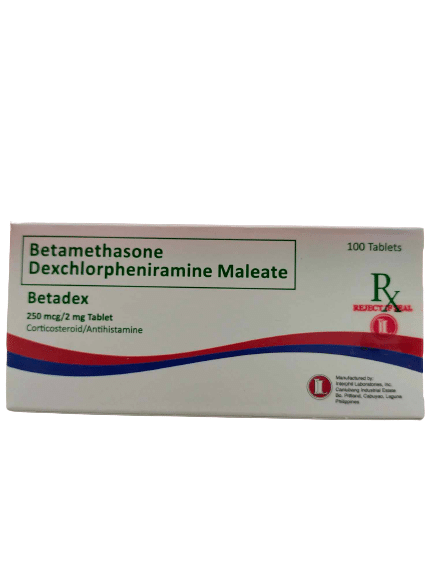Betamethasone is a commonly prescribed medication to treat various skin and inflammatory conditions. Due to its recognized effectiveness, it is used in a variety of contexts, ranging from eczema to the treatment of autoimmune diseases. However, its use is not without risks. The side effects associated with betamethasone may vary depending on the form of medication and the duration of treatment, making special attention to its administration essential. It is crucial for patients to be aware of the indications for this medication as well as the precautions to take to minimize the risks of adverse effects.

Betamethasone is a medication known for its anti-inflammatory and immunosuppressive properties. It belongs to the family of corticosteroids and is often prescribed for various pathologies, mainly those related to skin conditions, inflammatory diseases, and certain autoimmune disorders. The appropriate use of this medication and understanding its side effects are essential to maximize its benefits while minimizing potential risks. This text will provide you with a detailed overview of the medical prescription of betamethasone as well as its side effects to consider.
Indications and Prescription of Betamethasone
Betamethasone is often prescribed to treat different conditions, including:
- Skin conditions such as eczema, psoriasis, and atopic dermatitis.
- Inflammatory diseases such as rheumatoid arthritis and arthritis.
- Respiratory pathologies like asthma.
- Ophthalmic conditions.
The choice of the form of betamethasone (cream, ointment, tablets, or drops) will depend on the specifics of the disease being treated and its location. For example, an ointment is usually used for skin diseases, while tablets may be prescribed for systemic inflammatory problems. It is crucial that the dosage is adjusted individually by the physician based on the extent and severity of the condition.
In general, betamethasone begins to work within 24 hours of administration, but patients should be informed that effects may vary depending on the severity of their condition and the type of formulation used.
Potential Side Effects
Like any medication, betamethasone can cause side effects. It is essential for patients to be aware of these risks so that they can report any problems to their doctor.
Here is a list of the most common side effects:
- Water retention and weight gain.
- Mood changes such as anxiety, depression, or irritability.
- Headaches or dizziness.
- Dry skin, itching, or irritation.
- Bacterial or viral infections.
- Nausea and vomiting.
Betamethasone can also cause more serious effects, especially in the case of prolonged treatment or overdose. One may observe skin thinning, exacerbation of diabetes, osteoporosis, and cardiovascular issues. Regular medical follow-up is therefore recommended to monitor these adverse effects.
It is important to inform patients not to abruptly stop treatment, especially after prolonged use, as this could lead to withdrawal symptoms. Doctors should also evaluate the necessity of prescribing betamethasone as part of long-term treatment.
Precautions and Contraindications
There are several precautions to consider when using betamethasone. Doctors should ensure that patients do not have active viral or fungal infections before starting this treatment. Furthermore, this medication is generally contraindicated in pregnant or breastfeeding women, as the risk of adverse effects for the fetus or infant often outweighs the benefits.
Patients should discuss with their doctor any other medications they are taking, as betamethasone may interact with certain treatments, including anticoagulants and other immunosuppressive drugs. These interactions can affect how medications work or increase the risk of side effects.
Finally, special attention should be given to persons with a history of gastric ulcers, osteoporosis, or hormonal disorders, as the use of betamethasone could exacerbate these conditions.
For additional advice on the duration and management of betamethasone, online resources like this link can be consulted.
The risks associated with the prescription of betamethasone do not exclude its benefits. Proper management and open communication between the doctor and patient are essential to ensure optimal use of this treatment.
If you have doubts or questions about betamethasone, consult a healthcare professional or visit sites like Apollo Hospitals or Doctissimo for reliable information.

FAQ about Betamethasone
A : Betamethasone is a anti-fungal and steroid medication used to treat various skin and inflammatory conditions, such as eczema, psoriasis, and autoimmune conditions like rheumatoid arthritis.
Q : How does betamethasone work in the body?
A : Betamethasone works by inhibiting the inflammatory response by blocking the production of the cytokines responsible for inflammation. It also plays a role as an immunosuppressant.
Q : How long does it take for betamethasone to start working?
A : Betamethasone typically starts to work within 24 hours after administration. Effects may become noticeable after a few days or weeks depending on the severity of the condition.
Q : What are the common side effects of betamethasone?
A : Side effects may include weight gain, mood swings, headaches, dizziness, dry skin, itching, muscle pain, as well as nausea and vomiting.
Q : What precautions should be taken before using betamethasone?
A : Betamethasone should not be used by individuals with an active viral or fungal infection, or by pregnant or breastfeeding women. Consult a doctor if you are taking immunosuppressants.
Q : Which medications may interact with betamethasone?
A : Betamethasone may interact with other medications, including immunosuppressants, antidepressants, corticosteroids, diuretics, and barbiturates. Discuss with your doctor before taking it.
Q : What to do in case of betamethasone overdose?
A : In cases of acute overdose, symptoms may include headaches, dizziness, nausea, and vomiting. It is essential to contact a doctor or emergency services immediately.
Q : How should betamethasone be administered?
A : Betamethasone can be administered orally, topically, or inhaled. The dosage and method of administration depend on the condition being treated and should follow the recommendations of a doctor.













